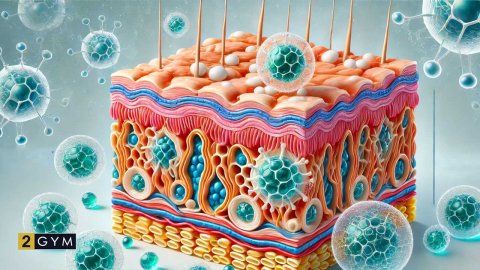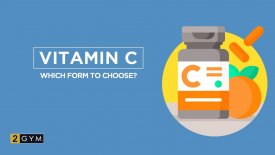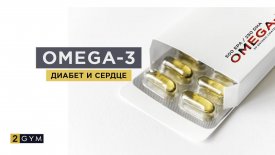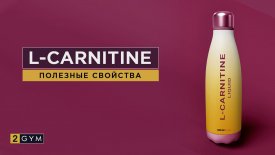What is Hyaluronic Acid?
Hyaluronic acid is not really an acid, but technically a glycosaminoglycan - a polysaccharide that is part of complex protein molecules. But to simplify things, we can say that hyaluronic acid is simply a sugar.
That being said, this is general knowledge information, as they say. What is important for us is that hyaluronic acid is capable of retaining water remarkably well - better than any other substance in the human body. And it retains exactly as much as necessary.
Hyaluronic Acid for Skin Health
It is also important to note that nearly half of the hyaluronic acid reserves in the human body are found in the skin. In other words, hyaluronic acid is the main substance responsible for skin hydration (1), and we know that dehydration is one of the causes of skin aging and wrinkle formation.
It can also be mentioned that hyaluronic acid is responsible for the skin's ability to regenerate - it ensures the renewal of dead cells with new cells.
The decrease in hyaluronic acid reserves in skin cells occurs both due to the natural aging process associated with hormonal changes, as well as under the influence of external factors - mainly exposure to ultraviolet rays (yes, I'm talking about that famous tanning), although stress and environmental pollution also contribute to this phenomenon (1, 2).
And here a perfectly legitimate question arises: can the loss of hyaluronic acid be compensated in any way? For example, by taking it as a dietary supplement.
Hyaluronic Acid Dietary Supplements
Forms of commercialization: hyaluronic acid is available in capsule form for oral intake, as well as in liquid form for skin application (sprays and drops). It can also be included in the composition of cosmetic creams; finally, it can enter the body through injections.
The last form of commercialization is relatively new and comes with many advantages and disadvantages that would require a separate article for a thorough assessment. So, I will not go into detail on this topic for now.
Hyaluronic acid in spray form is mainly used for small areas of the body - most often it is applied only to the face. The same can be said for creams - they are usually applied to specific areas of the skin.
The one marketed in drop form is specifically designed to treat localized inflammations of the skin. The effectiveness of all these solutions is quite high, as confirmed by studies (7, 8).
Hyaluronic acid taken orally acts systemically - on the skin of the whole body.
Bioavailability of this form of administration is higher, meaning that by taking hyaluronic acid orally, more molecules penetrate skin cells than when applied in equivalent quantities to the skin. Capsules for oral intake can be considered the most effective form of administration.
Which Supplement to Choose
Manufacturers often mention the molecular size of hyaluronic acid on labels. It is advisable to look for a mass close to 130 kDa, as I explained earlier.
Supplements can also contain other components such as biotin, zinc, vitamin B5, and others that help hyaluronic acid fulfill its functions. Their presence is not essential, but these components can be beneficial.
Finally, supplements use hyaluronic acid in the form of a salt (sodium hyaluronate or zinc hyaluronate), but there may also be hydrolyzed hyaluronic acid. In reality, there is not much difference between these forms, and manufacturers often mix them in a single supplement.
How and When to Take It?
- First of all, it should be said that hyaluronic acid taken as a supplement is effective for all skin types. Absolutely.
- Secondly, it is completely safe; you can use the supplement in any form for a prolonged period without interruption.
Capsules for oral intake have a huge advantage over moisturizers and creams, even aside from their effectiveness and the fact that they target the skin on the whole body rather than specific areas.
I am talking about the convenience of use: you can take the capsules once a day, usually during breakfast. In contrast, moisturizers and creams must be applied at least twice a day, and the application process is longer and more labor-intensive.
How Much Hyaluronic Acid to Take
Dosage: generally, capsules contain 150 mg of hyaluronic acid, and this is the optimal amount. So, one capsule a day, and your skin becomes healthier, slowing down the aging process.
Conclusion
Summary: hyaluronic acid can be legitimately considered a key element of healthy skin - without it, the skin loses its elasticity, smoothness, glow, and regenerative ability.
Supplements containing hyaluronic acid are truly effective, although this is not the case for all of them. The need for hyaluronic acid increases significantly with age.
Hyaluronic acid is capable of reducing the impact of negative factors on the skin: if you like tanning, its additional intake becomes essential for you.
Today, supplements containing hyaluronic acid are considered one of the main means to slow down skin aging. If you combine them with the intake of collagen, you can achieve truly impressive results.























Log in with ( Sign Up ? )
or post as a guest
Be the first to comment.